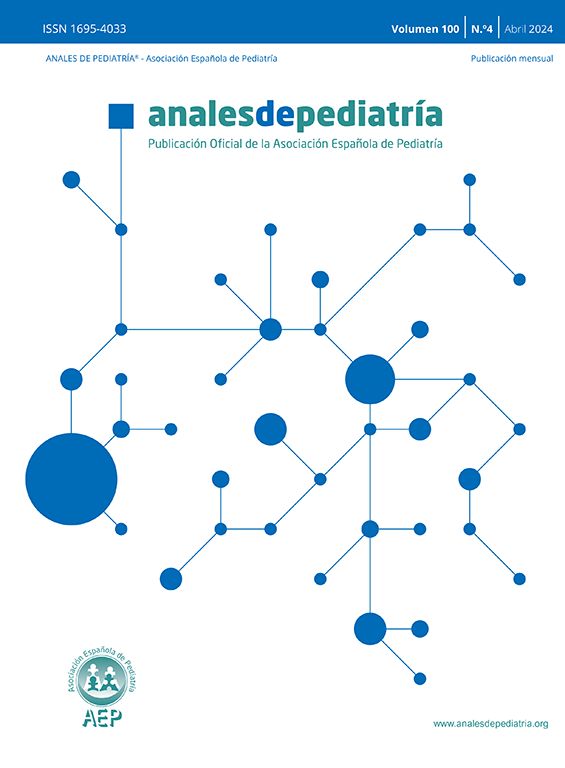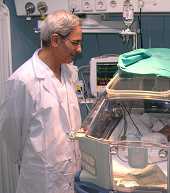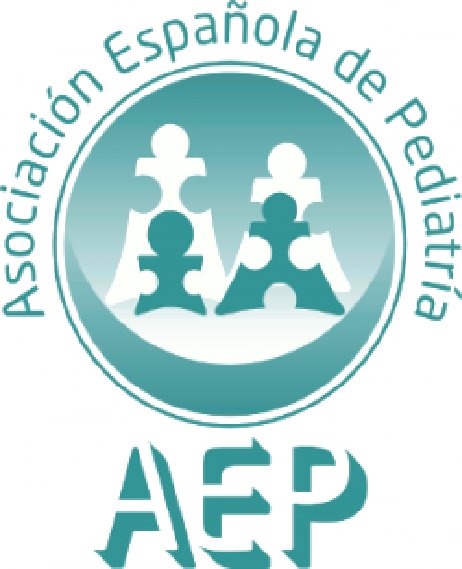El metapneumovirus humano es un virus de reciente descripción al que se atribuyen infecciones respiratorias que afectan fundamentalmente a la población infantil.
ObjetivosConocer la incidencia de infecciones por metapneumovirus en lactantes hospitalizados, así como sus características clínicas y la posible presencia de coinfecciones con otros agentes virales.
Pacientes y métodosEstudio prospectivo realizado de septiembre a junio de 2003 en todos los niños menores de 2 años ingresados en la Unidad de Lactantes del Hospital Severo Ochoa de Leganés (Madrid), por infección respiratoria. La detección de agentes virales se realizó mediante recogida de aspirado nasofaríngeo y realización de inmunofluorescencia directa y/o reacción en cadena de la polimerasa-transcripción inversa (RT-PCR). Descripción de las características clínicas y epidemiológicas de los procesos respiratorios de los pacientes con detección positiva para metapneumovirus humano.
ResultadosIngresaron 200 lactantes con patología respiratoria durante el período mencionado, de los cuales en 18 se detectó infección por metapneumovirus humano (9% de los pacientes). El metapneumovirus humano supuso un 13,8% de los aislamientos virales positivos. El 100 % de estos niños ingresaron en marzo-abril. La edad media fue de 6,7 ± 6,1 meses. El 38,8 % desarrolló una bronquiolitis y en el 55,5 % se objetivó un episodio recurrente de sibilancias. El 55,5 % de los niños precisó oxigenoterapia durante el ingreso. Se encontraron coinfecciones con otros agentes virales en el 33,3 % de estos pacientes.
ConclusionesEl metapneumovirus humano es un agente viral muy frecuente en los lactantes afectados de enfermedad respiratoria, causando fundamentalmente bronquiolitis y episodios recurrentes de sibilancias. Es más frecuente en primavera y tiene una alta tendencia a la coinfección con otros virus.
Human metapneumovirus (hPMV) is a recently identified virus that is recognized as a cause of respiratory tract illness in the pediatric population.
ObjectivesTo determine the incidence of respiratory tract infections caused by hPMV in hospitalized infants and to describe the clinical characteristics and possible presence of coinfection with other viral agents.
Patients and methodsWe performed a prospective study from September to June 2003 in all children aged less than 24 months who were admitted to the Severo Ochoa Hospital (Leganés, Madrid) with a respiratory tract infection. Virological diagnosis was made with a direct immunofluorescent assay and/or reverse transcriptase-polymerase chain reaction on specimens obtained from nasopharyngeal washing. Demographic and clinical data from patients with an hPMV respiratory tract infection were analyzed.
ResultsDuring the study period, 200 infants were admitted with a respiratory tract infection, of which 18 (9 %) had an hPMV infection. HPMV was the viral agent isolated in 13.8% of positive nasopharyngeal washings. All patients were admitted between March and April. The mean age was 6.7 ± 6.1 months. The most common diagnoses were recurrent wheezing (55.5 %) and bronchiolitis (38.8%). Oxygen therapy was required by 55.5 % of infants during hospitalization. Coinfection with other respiratory viruses was confirmed in 33.3% of the patients.
ConclusionsHuman metapneumovirus is a major cause of respiratory tract illness in hospitalized infants. This virus causes mainly bronchiolitis and recurrent wheezing and is more frequent in spring. Coinfection with other respiratory viruses is frequent.





